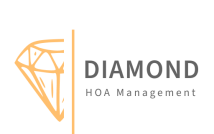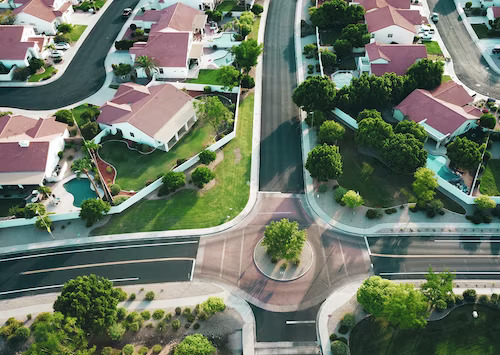Homeowners Association (HOA) property management is a complex task that requires effective strategies and best practices to ensure the smooth operation and maintenance of a community. From HOA budgeting and financial management to communication strategies and vendor management, several key areas need to be addressed for successful HOA property management. In this article, we will explore essential tips and insights that can help HOA managers and board members optimize their property management efforts.
Tips for Property Management
Managing HOAs is essential to ensure the overall well-being and cohesiveness of a community. Effective HOA management promotes a harmonious living environment and ensures that the community remains an attractive and desirable place to live. Here are some tips for effective property management:
- Effective HOA Communication Strategies
One of the HOA management strategies is clear and consistent communication. Establish various communication channels, such as newsletters, community websites, and social media platforms, to keep residents informed about important matters. Regularly update them about community events, maintenance schedules, rule changes, and any other relevant information. Open lines of communication foster transparency and ensure that residents are engaged and well-informed.
- Foster HOA Community Engagement
Encouraging community involvement is crucial for a thriving HOA. Organize regular meetings, events, and social gatherings where residents can voice their concerns, share ideas, and contribute to decision-making processes. This not only fosters a sense of ownership but also strengthens the community bond. Actively seek input from residents and consider their perspectives when making important decisions.
- Prioritize Property Maintenance for HOAs
Maintaining the property is a fundamental aspect of HOA property management. Implement a proactive maintenance plan that includes regular HOA property inspections, timely repairs, and preventive measures. Proper property maintenance ensures that common areas, amenities, and landscaping are well-maintained, enhancing the overall appeal of the community and preserving property values.
- Effective Budgeting and Financial Management
Proper financial management is essential for the smooth functioning of an HOA. Develop a comprehensive budget that covers operating expenses, reserves, and contingencies. Regularly review financial statements, track expenses, and ensure transparency in financial matters. Prioritize essential expenses and seek cost-effective solutions without compromising on the quality of services provided to residents.
- Have an HOA Reserve Fund
Establishing a reserve fund is a crucial tip for effective property management, including HOAs. A reserve fund is a dedicated account set aside to cover future major expenses or unexpected repairs. By allocating a portion of the HOA’s funds to the reserve fund regularly, the association can be prepared for large-scale projects, such as roof replacements, infrastructure repairs, or upgrades to common areas. Having a well-funded reserve allows the HOA to address these expenses without relying on special assessments or significantly increasing monthly dues. It provides financial stability and peace of mind for both the association and its members, ensuring the long-term sustainability of the community.
- Understand and Enforce HOA Rules and Regulations
Clear and enforceable rules and regulations are necessary to maintain order and harmony within the community. Ensure that all residents are aware of the HOA’s governing documents and enforce them consistently and fairly. This creates a sense of fairness and preserves the community’s standards. Regularly review and update the rules as needed to reflect the evolving needs of the community.
- Use Technology Solutions for HOA Management
Leverage technology to streamline HOA management tasks. Invest in software platforms that facilitate communication, financial management, and document storage. These tools can simplify administrative processes, improve efficiency, and enhance transparency. Implementing technology solutions can also provide residents with convenient access to information and services, enhancing their overall experience.
- Effective Vendor Management for HOAs
HOAs often work with various vendors for maintenance, repairs, and other services. Establish clear expectations, conduct thorough vendor evaluations, and maintain open lines of communication. Regularly review vendor contracts and performance to ensure the best services at competitive prices. Effective vendor management ensures that residents receive quality services and the community’s resources are utilized optimally.
- Empower the HOA Board of Directors
Ensure that board members are well-versed in their responsibilities and provide them with the necessary training and resources. Encourage collaboration, maintain open communication, and delegate tasks effectively within the board. A strong and empowered board is crucial for effective decision-making and governance.
- Consider Conflict Resolution in HOA Management
Conflicts and disputes are inevitable within any community. Establish a fair and efficient conflict resolution process to address residents’ concerns and mediate disputes. Encourage open dialogue and try to provide solutions that benefit the entire community. A proactive approach to conflict resolution helps maintain harmony and fosters a positive living environment.
Why Hire an HOA Management Company?
Hiring a professional HOA management company can be a beneficial decision for effective HOA property management. HOA management companies have expertise in handling the day-to-day operations, financial management, and administrative tasks of an HOA. They bring specialized knowledge and experience in dealing with legal requirements, vendor management, financial planning, and communication strategies.
By hiring a management company, the burden of managing the HOA is shifted to a dedicated team of professionals. They can handle tasks such as collecting dues, coordinating maintenance and repairs, enforcing rules and regulations, and organizing community events. This allows the HOA board and homeowners to focus on their respective roles and responsibilities without being overwhelmed by administrative tasks.
By implementing these essential HOA Management tips and best practices, HOA managers and board members can ensure the success and longevity of their communities. With a well-managed HOA, residents can enjoy a harmonious living environment and an enhanced sense of community.




